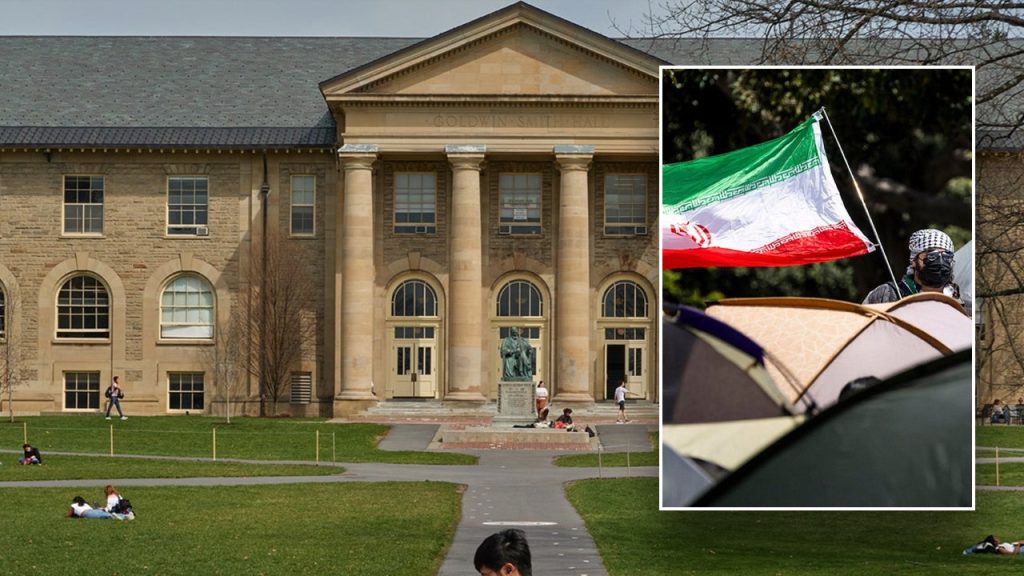Jewish students, parents, and professors at Cornell University in Ithaca, New York, were outraged after President Martha E. Pollack thanked anti-Israel agitators for their peaceful protests. The protesters had voluntarily taken down an encampment on campus that was in clear violation of university policies. Students, parents, and professors expressed their disgust at what they saw as a lack of condemnation of anti-Semitic behavior. They accused Cornell of allowing a hostile and dangerous environment for Jewish students to persist by not enforcing policies meant to protect them.
One student, Amanda Silberstein, described Pollack’s letter as an embarrassment and symbolic of Cornell’s larger problem with anti-Semitism. Silberstein mentioned being targeted with hateful language such as “c— Zionist pig b—-” and labeled a variety of derogatory terms. She criticized Cornell for failing to take action against those who engage in hate speech against Jews and condone violence. Another student, Talia Dror, refused to attend her graduation ceremony in protest of what she perceived as Cornell’s indoctrination of students with anti-Western rhetoric and hatred towards the free world.
Parents of Cornell students also reacted to Pollack’s letter, expressing concern over the hate directed at Jewish students on campus. They pointed out the use of derogatory terms and the frequent calls for Intifada. Professor William A. Jacobson of Cornell Law School criticized Pollack for praising protesters who violated university policies by setting up an encampment. Jacobson argued that Pollack’s statement was an insult to the rule-abiding Cornell community and particularly to Jewish and pro-Israel students who had endured harassment and intimidation.
Pollack’s retirement announcement in June sparked speculation about potential reasons for her departure, with some suggesting that her handling of anti-Israel protests may have played a role. The Cornell University Board of Trustees announced that Provost Michael I. Kotlikoff would serve as interim president starting on July 1, while Pollack would become president emerita. Pollack expressed gratitude for her time as president and the opportunity to make a positive difference. However, some members of the Cornell community called for Pollack to step down immediately to avoid further damage.
In response to Pollack’s letter, another Cornell professor expressed shock and disappointment, emphasizing the pervasive hate against Israelis on campus that Pollack had failed to address. The professor criticized Pollack for implicitly blaming Israelis for creating a non-inclusive environment at Cornell. The controversy surrounding Pollack’s handling of anti-Israel protests highlighted broader issues of anti-Semitism and intolerance at Cornell University. Calls for greater enforcement of policies to protect Jewish students and condemnation of hateful speech and violence were reiterated by various members of the Cornell community in the wake of Pollack’s letter.


